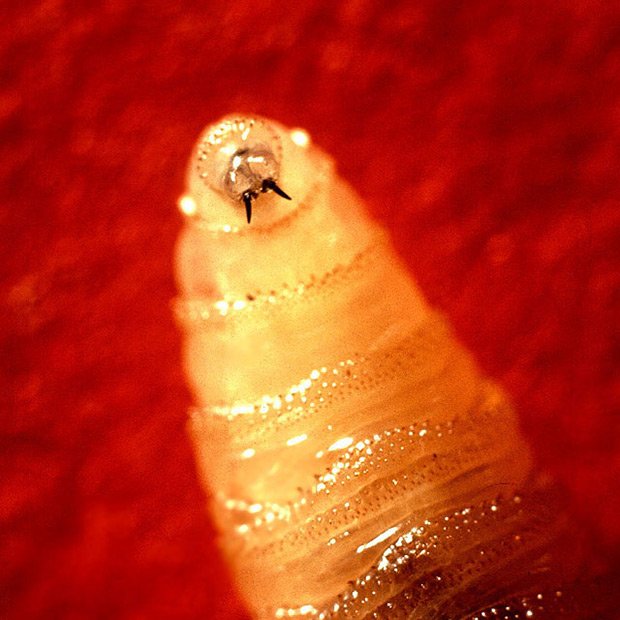[ad_1]
A two-month suspension on cattle and bison imports from Mexico is expected to be lifted soon.
The change comes after implementation of a comprehensive pre-clearance inspection and treatment protocol meant to prevent New World screwworms (NWS) from entering the United States. The U.S. Department of Agriculture (USDA) Animal and Plant Health Inspection Service (APHIS) made the announcement February 1.
APHIS temporarily suspended livestock imports from Mexico after that country detected NWS on November 22, 2024. The NWS fly, Cochliomyia hominivorax, is a species of parasitic fly whose tissue-eating larvae can infest any living mammal and cause severe damage, infection, and often death.
As part of the new protocol, cattle and bison will be inspected and treated for NWS—in addition to being dipped in a solution to ensure they are otherwise insect- and tick-free—by trained and authorized veterinarians prior to entering pre-export inspection pens in the Mexican cities of San Jeronimo and Agua Prieta, which have been APHIS inspected and approved.
There, the livestock will again undergo inspection by Mexican National Service for Health, Safety, and Food Quality (SENASICA) and APHIS officials before crossing at the Santa Teresa and Douglas ports of entry, respectively, according to the announcement.
Additional pre-export inspection pens and trade reopening through other ports of entry may come in the near future.
In the last two years, screwworm has spread north of the biological barrier established in Panama and into Costa Rica, Nicaragua, Honduras, Guatemala, El Salvador, Belize, and, most recently, Mexico. Multiple factors are behind the increase, according to APHIS, including new areas of farming in previous barrier regions for fly control and increased cattle movements into the region.
To eradicate NWS, APHIS is releasing sterile flies through aerial and ground release at strategic locations, focusing on southern Mexico and other areas throughout Central America. A complete list of regions APHIS recognizes as affected by screwworm, along with more detailed information on trade restrictions, can be found on the APHIS Animal Health Status of Regions website.
In related news, on January 21, APHIS resumed equine imports from Mexico with the implementation of a similar NWS safety protocol.
Per the plan, horse and other equid imports must be inspected by an approved veterinarian and treated with ivermectin or a similar APHIS-approved product within three to five days prior to entry into import quarantine.
Oral ivermectin paste may be used instead of injectable ivermectin. In addition, equine imports must be inspected under direct supervision of a veterinarian with the Mexican government within 24 hours prior to quarantine.
Animals with evidence of screwworm infestation at any point in the process are not eligible to import until they are treated, wounds are healed, and they are found free of NWS.
More information on the protocol and associated health certification documents are available on the APHIS website.
[ad_2]
Source link


